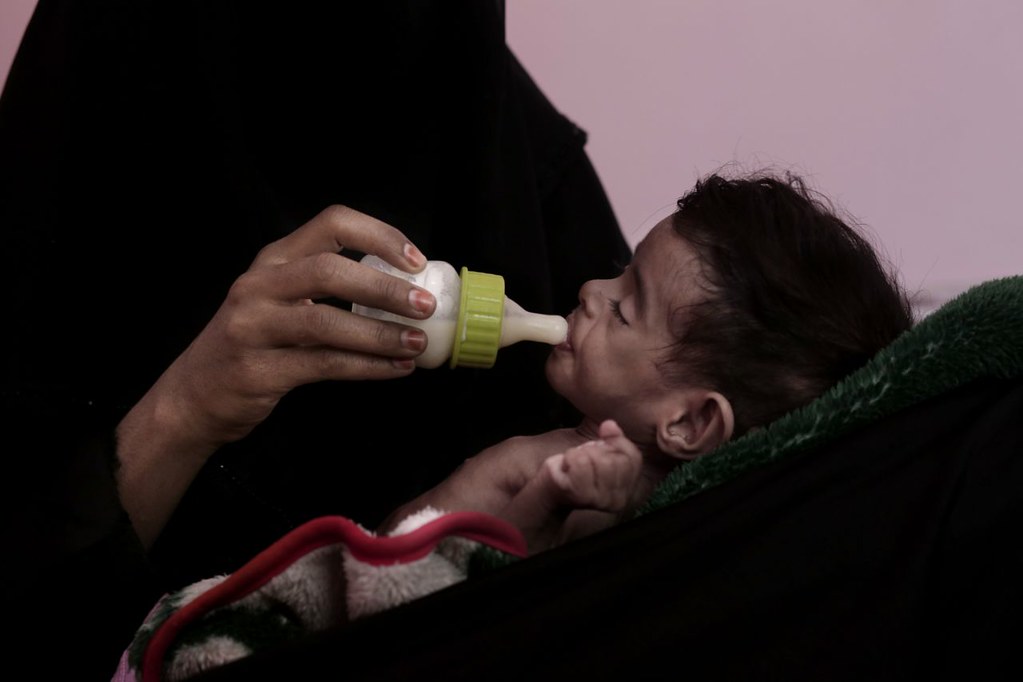Security Council: ‘Risky military adventurism’ could push Yemen into new cycle of war
Briefing ambassadors at the UN Security Council, Hans Grundberg voiced his disappointment at the failure to achieve key milestones that ordinary Yemenis have been demanding, by Ramadan.

The UN Special Envoy for Yemen on Thursday emphasized the urgent need for a nationwide ceasefire and measures to improve living conditions in the war-ravaged country.
Briefing ambassadors at the UN Security Council, Hans Grundberg voiced his disappointment at the failure to achieve key milestones that ordinary Yemenis have been demanding, by Ramadan.
“As I briefed last month, the mediation space has grown more complex. This continues to be the case,” he said.
“Although we have tried to shield the peace process from regional developments since the war in Gaza, the reality is, and allow me to repeat myself, that what happens regionally impacts Yemen - and what happens in Yemen can impact the region,” he added.
Special Envoy Hans Grundberg briefs the Security Council on the situation in Yemen.Risk of ‘new cycle of war’The Special Envoy highlighted the complexities, citing the recent targeting of vessels in the Red Sea and the Gulf of Aden by Houthi rebels, also known as Ansar Allah.
The attacks, along with retaliatory strikes by the United States and United Kingdom, further heightened tensions and raised concerns about the potential for a return to widespread conflict, he said.
“With more interests at play, the parties to the conflict in Yemen are more likely to shift calculations and alter their negotiation agendas. In a worst-case scenario, the parties could decide to engage in risky military adventurism that propels Yemen back into a new cycle of war,” he warned.
International commitment crucial
Mr. Grundberg said it was imperative to reach a ceasefire and initiate a political process to resolve the conflict, emphasizing the need to prioritize the voices and experiences of Yemeni women and civil society.
He underscored the importance of continued international support and diplomatic engagement to navigate the current regional turmoil and advance the peace process in Yemen.
He urged the Security Council to remain united in its commitment to a political resolution under UN auspices and pledged to continue his efforts with determination and resolve.
“I will rely on your collective diplomatic action to help me steer the mediation process through the current regional turmoil,” he told ambassadors.
Humanitarian situation
Also briefing ambassadors, Edem Wosornu, Director of Operations at the UN Office for the Coordination of Humanitarian Affairs (OCHA), echoed the Special Envoy’s concerns and provided a humanitarian update.
Levels of food insecurity and malnutrition have surged in recent months, posing a real and increasing threat to the lives and well-being of millions of people – Edem Wosornu, OCHA“Levels of food insecurity and malnutrition have surged in recent months, posing a real and increasing threat to the lives and well-being of millions of people, particularly women and children,” she said, noting an 11 per cent increase in hunger since November and nearly half of all children under five experiencing moderate to severe stunting.
Ms. Wosornu attributed the challenges to the ongoing conflict, economic crisis, and severe funding shortfalls, which have forced reductions in aid distribution, particularly in Houthi-controlled regions.
Need for funds
The OCHA official also stressed the importance of immediate funding, highlighting that for most Yemenis, food insecurity is an issue of affordability rather than accessibility.
She urged donors to step up their contributions to meet the $230 million required by the World Food Programme (WFP) over the next five months, while also emphasizing the need for sustainable solutions to address the root causes of humanitarian needs.
Sharing insights from her recent visits to Yemeni communities, where women expressed aspirations for economic empowerment and self-reliance, Ms. Wosornu reiterated her concerns that rising regional tensions and escalating conflicts in the Red Sea threaten to undermine these modest economic improvements.
“Attacks against vessels, such as the Rubymar, could have direct and indirect impacts on the livelihoods of thousands of people in coastal communities that rely on fishing for survival,” she warned.
Visit UN News for more.










